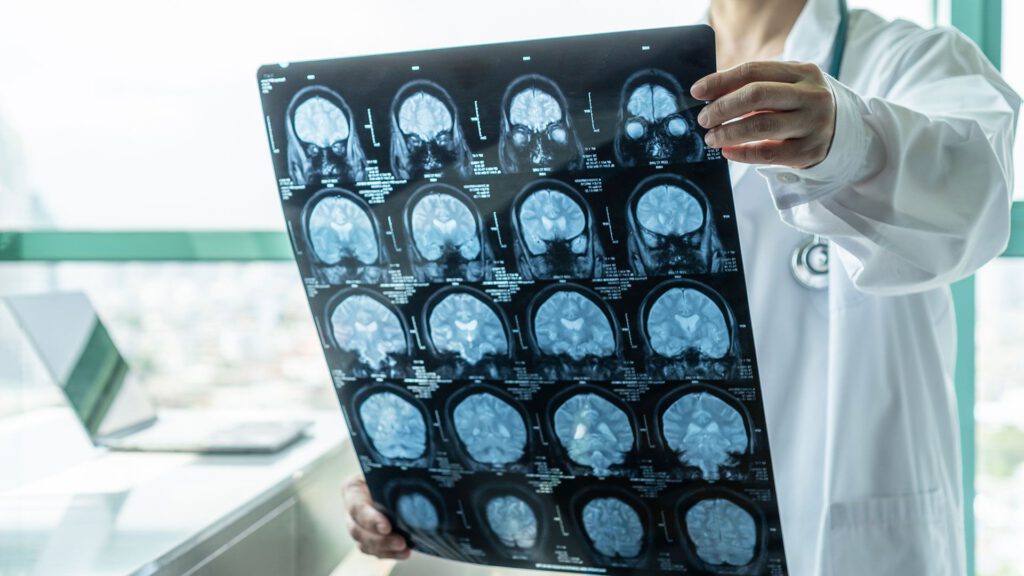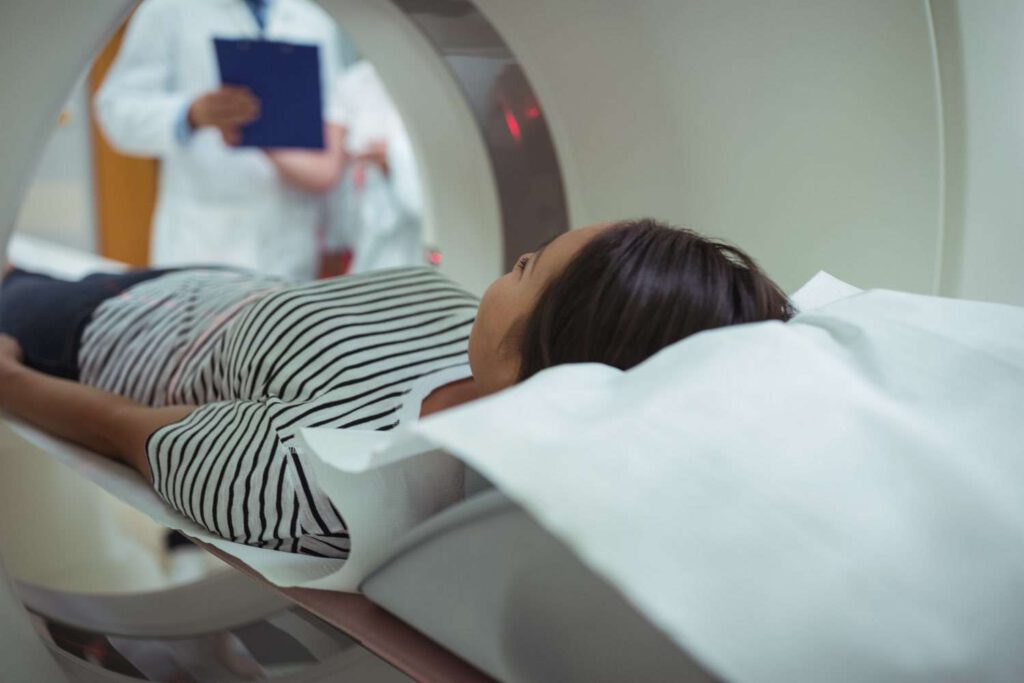Concussions
Concussions can happen instantly, and a victim may appear and act normally, but the injury could begin to affect their ability to think and focus clearly. Leaving a concussion untreated could lead to lasting damage or even death.
When you or a loved one has been injured with a concussion from a car accident, slip and fall mishap, or another injury, you may qualify for legal recourse if negligence was a contributing cause to the accident or injury. Don’t just hire any personal injury law firm; you need the expertise of Thorson Law Group. We are experienced trial lawyers who only handle traumatic brain injury cases and can connect you to the right medical professional for treatment and recovery.
What is a Concussion?
A concussion is a mild form of traumatic brain injury that affects the ability of the brain to function normally. Concussions occur when external forces strike the head or when the skull and brain are violently shaken. Although concussions may even occur after a minor bump or hit to the head, the symptoms can vary widely between individuals. Not always life-threatening, concussions should be approached with care and involve the guidance of a medical professional.
Common Causes of Concussions
- Motor Vehicle Accidents
- Trip and Fall Accidents
- Recreational or Sports Events
- Violence & Abuse
- Explosions
- Combat Situations
Signs and Symptoms of a Concussion
After suffering a concussion, the injury begins to disrupt the routine electrical activities of the brain, triggering concussion symptoms including:
- Headache
- Confusion
- Dizziness
- Problems with balance or coordination
- Memory problems
- Difficulty speaking
- Difficulty concentrating
- Feeling sluggish or groggy
- Behavior changes
- Insomnia or other sleep problems
- Blurred vision
- Sensitivity to noise or light
- Ringing in the ears
- Nausea or vomiting
Short-Term Effects
The short-term consequences of a concussion can last anywhere from several hours to a few weeks, with symptoms appearing either immediately after an accident or up to days and weeks afterward.
Long-Term Effects
Concussions lasting several weeks or more are typically associated with people who have had multiple concussions, resulting in a compounding effect that can prolong or even worsen an injury.
Symptoms that can last a few months to over a year or more include:
- Problems with long-term memory
- Slowing of certain body movements
- Cognitive problems
- Emotional distress
- Depression
What is a Concussion?
A concussion is a type of traumatic brain injury—or TBI—caused by a bump, blow, or jolt to the head or by a hit to the body that causes the head and brain to move rapidly back and forth. This sudden movement can cause the brain to bounce around or twist inside the skull, creating chemical changes in the brain and sometimes stretching and damaging brain cells.
Learn more about concussions from the CDC
The Brain Injury and Concussion Authorities
Thorson Law Group employs fierce trial attorneys that understand the stakes when dealing with brain injuries. We connect you to the medical professionals that can help victims understand their injury and learn the best course of action for treatment. Contact us today, and get the maximum compensation you deserve for your injury.

Concussion Treatment
A concussion is a serious injury; you should seek medical attention right away if you have suffered a concussion. Although rest is typically the best treatment for a concussion, serious complications can surface without warning. Therefore, the injury victim should be monitored for at least 24hrs after the accident and injury occur.
If symptoms continue after you have received medical attention, be sure to contact your healthcare provider or reach out to a medical professional specializing in treating concussions; for that, the attorneys at Thorson Law Group are here to help. We have dedicated our careers to helping the victims of concussions and other traumatic brain injuries; contact us today.
Possible Tests and Assessments
Concussion injuries and their severity depend on each victim. Medical professionals use the following tests and assessments to help determine the severity of the injury and the correct treatment plans to use. Learn more about these tests and assessments below.
- EEG (Electroencephalogram) – An EGG can detect electrical brain abnormalities. Testing involves placing electrodes directly on the scalp.
- X-rays – X-rays are used to check the structural integrity of the skull and facial bones. Taking an X-ray involves a camera being focused on the body part in a question and examining the picture taken by a medical professional.
- CT or CAT Scan (Computed Tomography Scan) – CAT Scans are used to view the damage caused to the skull, brain structure, and facial bones. CAT scans can detect bleeding, blood clots, swelling, or the compression of the brain. A CAT Scan is completed by focusing a camera on the area to be examined; a medical professional takes images of the affected area and reviews the images.
- MRI (Magnetic Resonance Imaging) – MRIs use an imaging technique to provide a detailed view of brain structure, even more so than a CAT scan. An MRI can help medical professionals examine the brain stem and cerebellum structure, which is harder with a CAT scan.
Other types of tests might include:
- Glasgow Coma Scale (GCS)
- Arterial Blood Gas (ABG)
- Spect Scan
- PET Scan
- DTI MRI
- Neurological Exam
- Neuropsychological Exam
Treatment in the Intensive Care Unit (ICU):
The treatment goals within an ICU are achieving medical stability, medical management, and the prevention of medical crises. Victims of a concussion that end up in ICU may be unconscious, in a coma, or even medically unstable. This is a critical time for the patient, which is why it is important to contact the attorneys at Thorson Law Group right away and get the medical attention you or your loved one deserve.
Concussion Recovery Time
The recovery time of a concussion depends heavily on its severity. It can take as little as a few days for most victims to feel symptom-free and back to normal, but some victims may need months or even years. Recovery time can be sped up by reducing your cognitive load and doing as little thinking as possible; activities to restrict include:
- Reduce or restrict TV watching
- Reduce or restrict reading and writing
- Reduce or restrict texting
- Reduce or restrict using computers
- Reduce or restrict other activities that involve thinking
If you or a loved one is currently suffering from a concussion, contact the attorneys at Thorson Law Group. We will dedicate the time and resources necessary to get the right experts to help diagnose your condition and treat it while developing your case.
